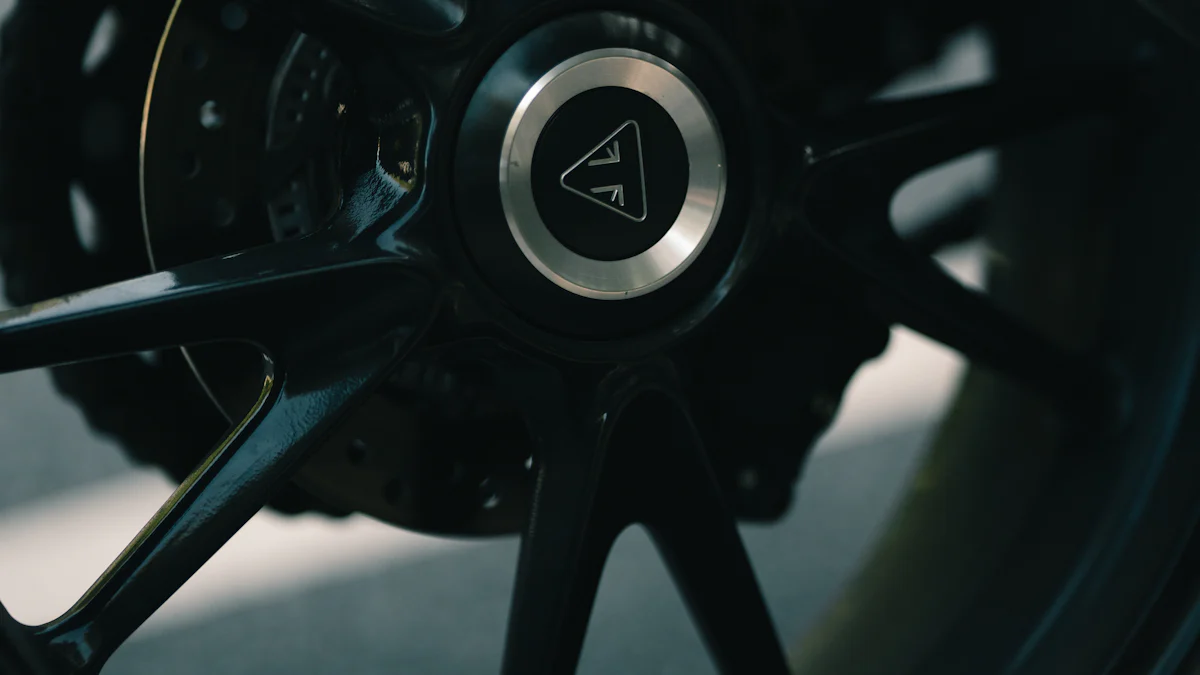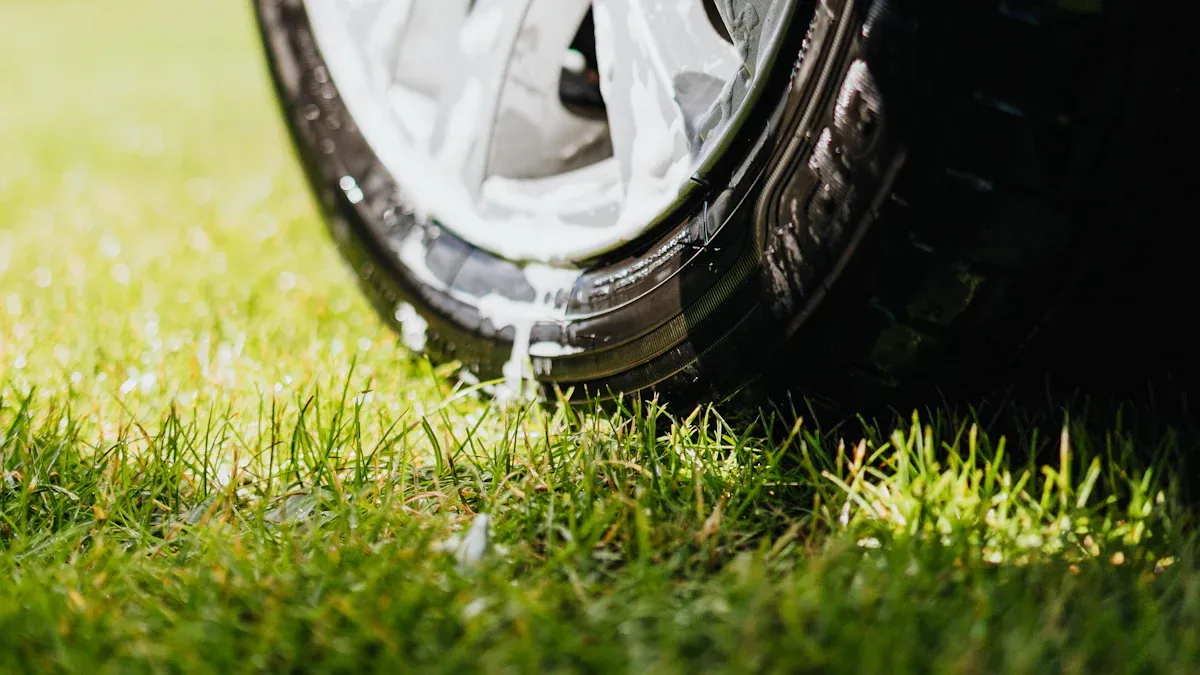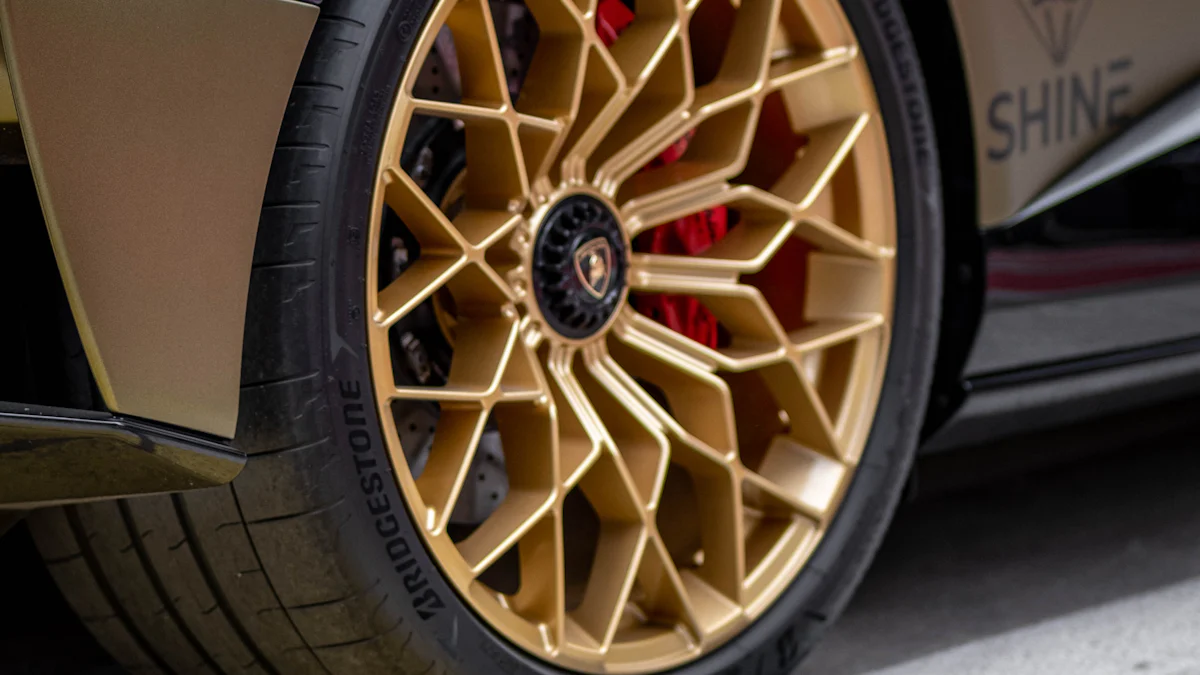
Understanding the specifications of a 17×7.5 steel wheel is essential for ensuring optimal vehicle performance and safety. These wheels are known for their exceptional strength, making them a reliable choice for challenging road conditions. Unlike alloy wheels, steel wheels resist bending or cracking when faced with potholes or curbs. Their durability and practicality have made them a popular option for off-road enthusiasts and drivers seeking cost-effective solutions. Additionally, their robust construction supports heavy loads, providing enhanced stability and control for various vehicle types.
Key Takeaways
17×7.5 steel wheel is known for its exceptional strength and durability, making it ideal for off-road and heavy-duty applications.
- These wheels are compatible with a wide range of vehicles, including sedans, SUVs, and light trucks, ensuring versatility in use.
Steel wheels are more affordable than alloy wheels, providing a cost-effective solution without sacrificing performance or safety. - Their robust construction resists bending and cracking, making them a reliable choice for challenging road conditions and winter driving.
- Regular maintenance, such as cleaning and repainting, can extend the lifespan of steel wheels and prevent rust.
- Choosing the correct bolt pattern and offset is crucial for safe installation and optimal vehicle performance.
- Steel wheels enhance traction and stability in winter conditions, making them a smart choice for seasonal tire setups.
Dimensions and Specifications of 17×7.5 Steel Wheels
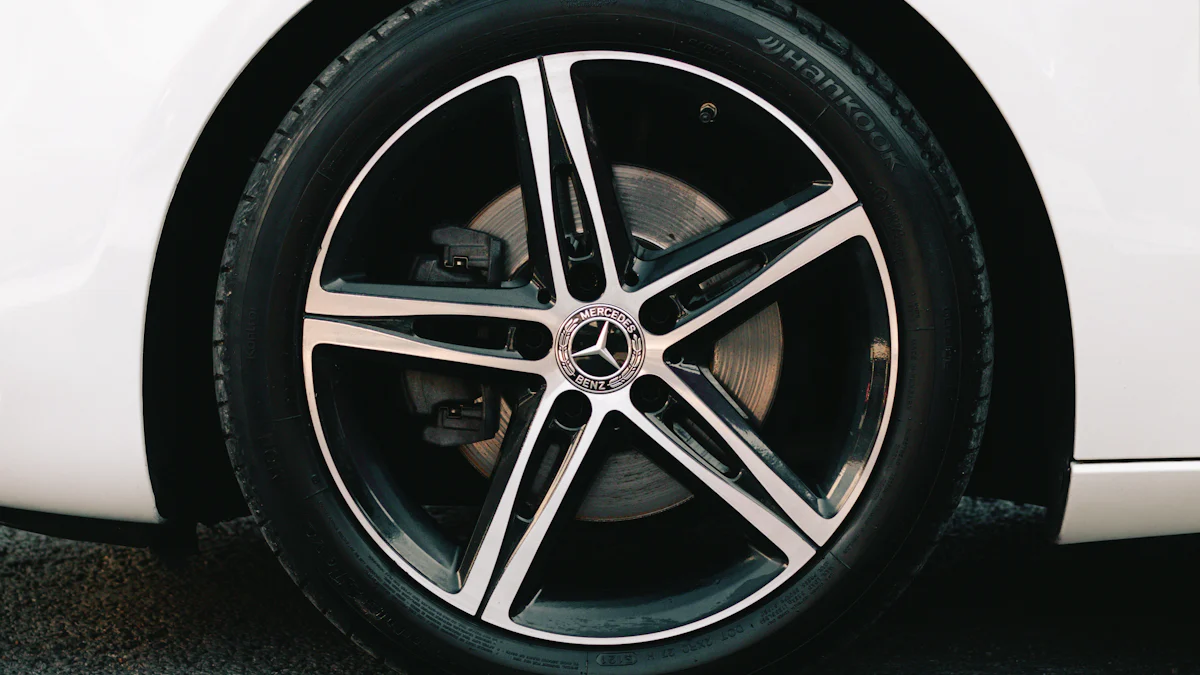
Key Measurements
Diameter and width (17 inches x 7.5 inches)
The 17×7.5 steel wheel features a rim diameter of 17 inches and a width of 7.5 inches. These dimensions ensure compatibility with a wide range of vehicles, including sedans, SUVs, and light trucks. The 17-inch diameter provides a balance between performance and comfort, while the 7.5-inch width supports stability during driving. This combination enhances handling and ensures a secure fit for tires, making it a versatile choice for various driving conditions.
Bolt patterns and offset variations
Bolt patterns on a 17×7.5 steel wheel vary depending on the vehicle’s make and model. Common patterns include 5×114.3 and 6×139.7, which indicate the number of lugs and the distance between them. Ensuring the correct bolt pattern is crucial for proper installation and safety. Offset variations, which determine how the wheel sits relative to the suspension, also play a significant role. A positive offset positions the wheel closer to the vehicle’s body, while a negative offset pushes it outward. Selecting the right offset ensures optimal alignment and prevents interference with the brakes or suspension.
Material and Construction
Steel composition and manufacturing process
The 17×7.5 steel wheel is crafted from OEM Grade-A steel, known for its strength and durability. Manufacturers use advanced processes, such as stamping and welding, to shape the steel into a robust wheel structure. This meticulous construction ensures resistance to bending and cracking, even under heavy loads or challenging road conditions. The use of high-quality steel also enhances the wheel’s longevity, making it a reliable option for long-term use.
Weight and its impact on vehicle performance
Steel wheels are generally heavier than alloy wheels, and the 17×7.5 steel wheel is no exception. This added weight contributes to improved stability, especially in off-road or winter driving scenarios. Heavier wheels lower the vehicle’s center of gravity, enhancing traction and control. While the increased weight may slightly affect fuel efficiency, the trade-off in durability and performance often outweighs this drawback for many drivers.
Load Capacity and Safety Standards
Maximum load ratings for 17×7.5 steel wheels
The 17×7.5 steel wheel is designed to handle substantial loads, making it suitable for vehicles that carry heavy cargo or tow trailers. Its maximum load rating ensures that it can support the weight without compromising safety or performance. Always check the manufacturer’s specifications to confirm the load capacity aligns with your vehicle’s requirements.
Compliance with industry safety certifications (e.g., IATF 16949)
Safety remains a top priority in the design and production of the 17×7.5 steel wheel. These wheels comply with stringent industry standards, including the IATF 16949 certification. This certification guarantees that the manufacturing process adheres to high-quality standards, ensuring reliability and safety for users. Choosing certified wheels provides peace of mind, knowing they meet rigorous testing and quality benchmarks.
Steel Wheels vs Alloy Wheels: A Comparison
When choosing between steel and alloy wheels, understanding their differences helps you make an informed decision. Each type offers unique advantages based on your driving needs, budget, and vehicle type.
Cost and Value
Affordability of steel wheels compared to alloy wheels
Steel wheels stand out for their affordability. They cost significantly less than alloy wheels, making them an excellent choice if you want a budget-friendly option. The manufacturing process for steel wheels is simpler and less expensive, which translates to lower prices for you. This makes steel wheels particularly appealing for vehicles used in rugged conditions or as seasonal replacements.
Long-term value and maintenance costs
Maintenance costs remain low because steel wheels resist damage from impacts and harsh conditions.
Durability and Maintenance
Resistance to damage, wear, and corrosion
Steel wheels excel in durability. They resist bending and cracking, even under heavy loads or challenging terrains. This makes them ideal for off-road adventures and winter driving. Unlike alloy wheels, which can corrode when exposed to salt and moisture, steel wheels handle these conditions better. Their strength ensures they withstand impacts from potholes or curbs without compromising safety.
Maintenance requirements for steel vs alloy wheels
Maintaining steel wheels is straightforward. Regular cleaning and occasional repainting keep them in good condition. Alloy wheels, on the other hand, demand more attention. Their lighter material is prone to scratches and dents, requiring professional repairs. Steel wheels save you time and money by offering a low-maintenance solution for your vehicle.
Performance and Aesthetics
Impact on handling, fuel efficiency, and vehicle dynamics
Alloy wheels enhance handling and fuel efficiency due to their lightweight design. They reduce unsprung weight, improving acceleration and braking. However, steel wheels provide better stability, especially in winter or off-road conditions. The added weight of steel wheels lowers the vehicle’s center of gravity, increasing traction and control. If you prioritize durability over performance, steel wheels are the better choice.
Visual appeal and customization options
Alloy wheels often win in aesthetics. Their sleek designs and variety of finishes add a stylish touch to your vehicle. Steel wheels, while less visually appealing, focus on functionality. They typically come in basic finishes like black or silver. However, you can customize steel wheels with hubcaps or paint to match your preferences. If appearance matters less than practicality, steel wheels meet your needs effectively.
Compatibility with Vehicles and Tires
Vehicle Fitment
Common vehicle types that use 17×7.5 steel wheels
The 17×7.5 steel wheel is a compatible with a wide range of vehicles. Many sedans, SUVs, and light trucks rely on this wheel size for its balance of performance and durability.
Importance of checking bolt patterns and offsets
When selecting a 17×7.5 steel wheel, you must ensure the bolt pattern and offset match your vehicle’s specifications. Bolt patterns, such as 5×127 or 6×139.7, indicate the number of lugs and the spacing between them. Using the wrong bolt pattern can lead to improper installation, compromising safety. Offset, which determines how the wheel aligns with the suspension, is equally critical. A positive offset positions the wheel closer to the vehicle’s body, while a negative offset pushes it outward. Checking these details ensures a secure fit and prevents issues with braking or suspension systems.
Tire Pairing
Recommended tire sizes for 17×7.5 steel wheels
Commonly recommended tire sizes include 225/65R17 and 235/70R17, which provide a good balance of traction and comfort.
Seasonal tire options, including winter tires
For seasonal driving, steel wheels pair exceptionally well with winter tires. Downsizing to a 17-inch steel wheel during colder months can improve your vehicle’s performance in snow and ice. Winter tires with larger sidewalls, such as 225/70R17, absorb shocks from potholes and icy roads more effectively. This combination enhances grip and control, making it an ideal choice for harsh winter conditions. Steel wheels also resist corrosion from road salt, ensuring durability throughout the season.
Special Use Cases
Off-road and heavy-duty applications
The 17×7.5 steel wheel excels in off-road and heavy-duty scenarios. Its robust construction withstands impacts from rocks, mud, and uneven terrain, making it a favorite among off-road enthusiasts. Trucks and SUVs tackling rugged trails benefit from the wheel’s strength and stability. Additionally, its high load capacity supports heavy cargo, making it suitable for towing and hauling tasks. Whether you’re navigating rocky paths or carrying substantial loads, this wheel delivers reliable performance.
Urban and daily driving scenarios
For urban and daily driving, the 17×7.5 steel wheel offers practicality and cost-effectiveness. Its durability ensures it can handle potholes, curbs, and other common road hazards without damage. The straightforward design requires minimal maintenance, saving you time and money. While it may lack the aesthetic appeal of alloy wheels, its functionality makes it a dependable choice for everyday use. If you prioritize reliability over style, this wheel meets the demands of city driving effortlessly.
Advantages of 17×7.5 Steel Wheels for Winter Driving
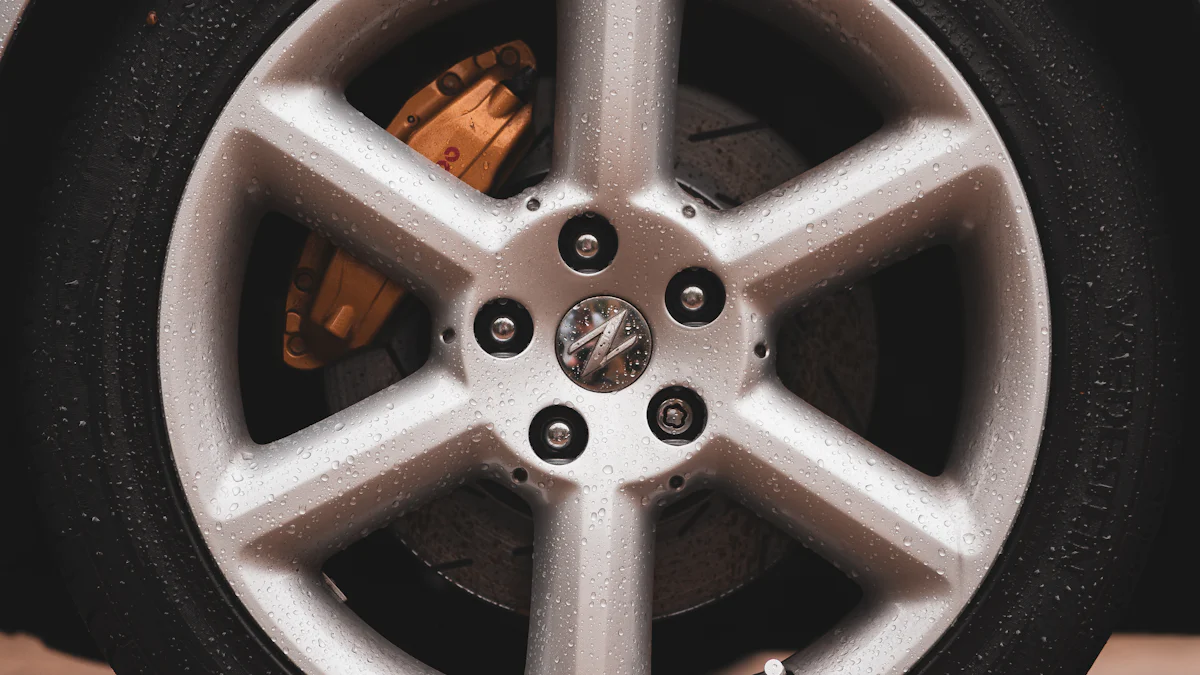
Durability in Harsh Conditions
Resistance to salt, corrosion, and extreme weather
Winter roads often expose your vehicle to salt, moisture, and freezing temperatures. The 17×7.5 steel wheel excels in these conditions due to its robust construction. Steel resists corrosion better than many materials, especially when paired with protective coatings. This resistance ensures that the wheels maintain their integrity even after prolonged exposure to road salt and slush. Unlike alloy wheels, which may crack or corrode under such conditions, steel wheels provide a reliable and long-lasting solution for winter driving.
Performance in icy and snowy environments
Driving on icy or snowy roads demands stability and control. The added weight of steel wheels enhances traction by lowering the vehicle’s center of gravity. This feature improves grip on slippery surfaces, giving you better handling and braking performance. Steel wheels also pair well with winter tires, which have deeper treads designed to navigate snow and ice effectively. Together, they create a dependable setup that ensures safety and confidence during harsh winter months.
Cost-Effective Seasonal Solution
Why steel wheels are ideal for winter tire setups
Steel wheels offer an affordable option for winter tire setups. Their lower cost compared to alloy wheels makes them an economical choice for seasonal use. You can dedicate steel wheels to winter tires, avoiding the need to swap tires on your primary wheels. This approach not only saves time but also reduces wear and tear on your more expensive wheels. Steel wheels’ durability ensures they withstand the rigors of winter driving without requiring frequent replacements.
Easy replacement and maintenance during winter months
Maintaining steel wheels during winter is straightforward. Regular cleaning removes salt and grime, preventing rust and extending their lifespan. If damage occurs, steel wheels are easier and cheaper to repair or replace than alloy wheels. Their simple design allows for quick fixes, ensuring minimal downtime for your vehicle. This practicality makes steel wheels a hassle-free solution for winter driving, keeping your vehicle ready for the challenges of the season.
Real-World User Experiences and Testimonials
Feedback from Everyday Drivers
Positive experiences with durability, cost, and practicality
Many drivers praise the 17×7.5 steel wheels for their unmatched durability and cost-effectiveness. You will find these wheels particularly reliable when navigating rough terrains or dealing with harsh weather conditions. Drivers often highlight how these wheels withstand impacts from potholes and curbs without bending or cracking. This resilience makes them a dependable choice for daily commutes and off-road adventures alike.
The affordability of steel wheels also stands out. Compared to alloy wheels, steel wheels offer a budget-friendly solution without compromising on performance. Many users appreciate the long-term savings, as these wheels require minimal maintenance and rarely need replacement. Their practicality extends to winter driving, where their resistance to corrosion and compatibility with winter tires provide added value.
One driver shared, “I’ve been using 17×7.5 steel wheels for years, and they’ve never let me down. They’re tough, affordable, and perfect for winter driving.” This sentiment reflects the widespread satisfaction among everyday users who prioritize reliability and cost over aesthetics.
Challenges and limitations noted by users
While steel wheels excel in durability and practicality, some drivers note a few limitations. The heavier weight of steel wheels can slightly reduce fuel efficiency compared to lighter alloy wheels. You might also find their basic design less visually appealing if aesthetics are a priority for you. However, many users overcome this by customizing their steel wheels with hubcaps or paint to match their preferences.
Another common observation is the need for occasional repainting to prevent rust, especially in regions with high humidity or frequent road salt exposure. Despite these minor challenges, most drivers agree that the benefits of steel wheels far outweigh their drawbacks, particularly for those seeking a functional and cost-effective option.
Insights from Automotive Experts
Professional recommendations for steel wheels
Automotive experts often recommend steel wheels for their strength and reliability. According to professionals, steel wheels are ideal for vehicles frequently exposed to rugged conditions or heavy loads. Experts emphasize their suitability for winter driving, where their resistance to corrosion and ability to pair seamlessly with winter tires enhance safety and performance.
One expert stated, “Steel wheels are a practical choice for drivers who value durability over aesthetics. Their robust construction ensures they perform well in challenging environments.” This endorsement underscores the value of steel wheels for drivers prioritizing functionality and long-term use.
Common scenarios where steel wheels excel
Steel wheels shine in specific scenarios where durability and practicality take precedence. For off-road enthusiasts, these wheels handle rocky trails and uneven terrains with ease. Their ability to support heavy loads makes them a preferred choice for towing and hauling tasks. In urban settings, steel wheels prove their worth by enduring daily wear and tear, such as impacts from potholes and curbs.
Experts also highlight the advantages of steel wheels in winter conditions. The added weight improves traction on icy roads, while their resistance to salt and moisture ensures longevity. As one professional noted, “Steel wheels are built to endure. Whether you’re navigating snowy streets or rugged trails, they deliver consistent performance.”
By considering both user feedback and expert insights, you can make an informed decision about whether 17×7.5 steel wheels align with your driving needs and priorities.
FAQs
1. Are steel wheels more durable than alloy wheels?
Yes, steel wheels are more durable than alloy wheels in many scenarios.
2. Can I use 17×7.5 steel wheels for winter driving?
Absolutely. Steel wheels are an excellent choice for winter driving. Their heavier weight improves traction by lowering your vehicle’s center of gravity, which enhances stability on icy or snowy roads. Steel wheels also resist corrosion caused by road salt and moisture, ensuring long-lasting performance during harsh winters. Pairing them with winter tires creates a reliable setup for navigating cold-weather conditions safely.
3. What vehicles are compatible with 17×7.5 steel wheels?
The 17×7.5 steel wheels fit a wide range of vehicles, including sedans, SUVs, and light trucks. Popular models like the Ford Escape and Jeep Wrangler often use this wheel size due to its balance of durability and performance. Always check your vehicle’s manual or consult a professional to confirm compatibility. Ensuring the correct bolt pattern and offset is essential for a secure fit.
4. How do I maintain steel wheels to prevent rust?
Maintaining steel wheels is simple.
5. Are steel wheels cost-effective compared to alloy wheels?
Yes, steel wheels are highly cost-effective. They are more affordable than alloy wheels due to their simpler manufacturing process. Their durability reduces the need for frequent replacements, saving you money in the long run. Maintenance costs are also lower since steel wheels resist damage from impacts and harsh conditions. For budget-conscious drivers, steel wheels offer excellent value without compromising reliability.
6. Can I customize the appearance of steel wheels?
You can customize steel wheels to suit your preferences. While they typically come in basic finishes like black or silver, you can enhance their appearance with hubcaps or custom paint. Many drivers choose to paint their steel wheels to match their vehicle’s color or add a personal touch. This flexibility allows you to balance practicality with aesthetics.
7. Do steel wheels affect fuel efficiency?
Steel wheels are heavier than alloy wheels, which can slightly reduce fuel efficiency. The added weight increases rolling resistance, requiring more energy to move the vehicle. However, this trade-off is minimal for most drivers and is outweighed by the benefits of durability and stability. If fuel efficiency is a top concern, consider this factor when choosing between steel and alloy wheels.
8. Why are steel wheels recommended for off-road use?
Steel wheels excel in off-road conditions due to their strength and resilience. They withstand impacts from rocks, mud, and uneven terrain without bending or cracking. Their high load capacity supports heavy cargo, making them suitable for towing and hauling tasks. For off-road enthusiasts, steel wheels provide reliable performance and peace of mind during rugged adventures.
9. How do I choose the right tires for 17×7.5 steel wheels?
Selecting the right tires depends on your driving needs and conditions. Common tire sizes for 17×7.5 steel wheels include 225/65R17 and 235/70R17, which offer a good balance of traction and comfort. For winter driving, consider tires with larger sidewalls, such as 225/70R17, to improve grip on icy roads. Always consult your vehicle’s manual or a tire professional to ensure proper alignment and compatibility.
10. Are steel wheels a good investment for daily driving?
Steel wheels are a practical investment for daily driving. Their durability ensures they handle common road hazards like potholes and curbs without damage. Maintenance is straightforward, and their affordability makes them a cost-effective option for everyday use. While they may lack the visual appeal of alloy wheels, their functionality and reliability make them an excellent choice for urban and daily driving scenarios.
The 17×7.5 steel wheel stands out as a reliable and practical choice for various driving needs. Its robust construction ensures durability, making it ideal for winter driving and heavy-duty applications. The larger sidewall height it supports enhances shock absorption, offering better performance on icy roads and rugged terrains. Additionally, its affordability and ease of maintenance make it a cost-effective solution for drivers seeking long-term value. To ensure compatibility with your vehicle, consult a professional before purchasing. For high-quality options, consider trusted manufacturers like BRS Auto Parts, known for their commitment to excellence.
FAQ
Are steel wheels more durable than alloy wheels?
Yes, steel wheels are significantly more durable than alloy wheels. Steel, being one of the strongest metals, resists bending and cracking even under harsh conditions. Manufacturers press and weld steel into shape, creating wheels that can withstand impacts from potholes or curbs. This durability makes steel wheels a reliable choice for off-road driving and challenging terrains. Additionally, steel wheels are easier and cheaper to repair if damaged, further enhancing their practicality.
Why do many drivers prefer steel wheels for off-roading?
Steel wheels are a popular choice for off-roading due to their strength and resilience. They handle rough terrains, such as rocky trails and muddy paths, without bending or cracking. Many drivers switch to steel wheels to preserve their alloy wheels, which are more prone to damage in such conditions. Steel wheels also perform well in bad weather, making them a dependable option for adventurous drivers who prioritize durability over aesthetics.
What are the advantages of steel wheels over alloy wheels?
Steel wheels offer several advantages over alloy wheels. They are more resistant to damage from impacts, making them ideal for off-road and heavy-duty applications. Their simpler manufacturing process results in lower costs, making them a budget-friendly option. Steel wheels are also easier to repair, as minor damages can often be fixed without replacing the entire wheel. These benefits make steel wheels a practical and cost-effective choice for many drivers.
How do alloy and steel wheels differ in performance and durability?
Alloy and steel wheels serve different purposes based on their unique characteristics. Alloy wheels are lighter, which improves handling, acceleration, and fuel efficiency. However, they are more prone to bending or cracking under impact. Steel wheels, on the other hand, are heavier but far more durable. They resist damage from potholes and curbs, making them better suited for rugged conditions. If you prioritize performance, alloy wheels may be preferable. For durability and cost-effectiveness, steel wheels are the better choice.
What vehicles are compatible with 17×7.5 steel wheels?
The 17×7.5 steel wheels fit a wide range of vehicles, including sedans, SUVs, and light trucks. Popular models like the Ford Escape and Jeep Wrangler often use this wheel size due to its balance of durability and performance. These wheels are also favored by off-road enthusiasts and drivers who frequently carry heavy loads. Always check your vehicle’s manual or consult a professional to ensure compatibility with your specific make and model.
Why are steel wheels recommended for winter driving?
Steel wheels excel in winter driving conditions. Their heavier weight improves traction by lowering the vehicle’s center of gravity, which enhances stability on icy or snowy roads. Steel wheels also resist corrosion caused by road salt and moisture, ensuring long-lasting performance throughout the winter months. Pairing them with winter tires creates a reliable setup for navigating cold-weather conditions safely and effectively.
Are steel wheels a cost-effective option?
Steel wheels are highly cost-effective. Their simpler manufacturing process makes them more affordable than alloy wheels. They also require less maintenance and are easier to repair, reducing long-term costs. For drivers seeking a budget-friendly solution without compromising durability, steel wheels provide excellent value. Their affordability and practicality make them a popular choice for both daily driving and seasonal use.
Can I customize the appearance of steel wheels?
Yes, you can customize steel wheels to suit your preferences. While they typically come in basic finishes like black or silver, you can enhance their appearance with hubcaps or custom paint. Many drivers choose to paint their steel wheels to match their vehicle’s color or add a personal touch. This flexibility allows you to balance practicality with aesthetics, creating a look that complements your style.
Do steel wheels affect fuel efficiency?
Steel wheels are heavier than alloy wheels, which can slightly reduce fuel efficiency. The added weight increases rolling resistance, requiring more energy to move the vehicle. However, this trade-off is minimal for most drivers. The benefits of durability, stability, and cost-effectiveness often outweigh the slight impact on fuel efficiency, especially for those driving in rugged or winter conditions.
Why are steel wheels a good investment for daily driving?
Steel wheels are a practical investment for daily driving. Their durability ensures they handle common road hazards like potholes and curbs without damage. Maintenance is straightforward, requiring only regular cleaning and occasional repainting to prevent rust. Their affordability makes them a cost-effective option for everyday use. If you prioritize reliability and functionality over aesthetics, steel wheels are an excellent choice for urban and daily driving scenarios.
- Posted In:General



